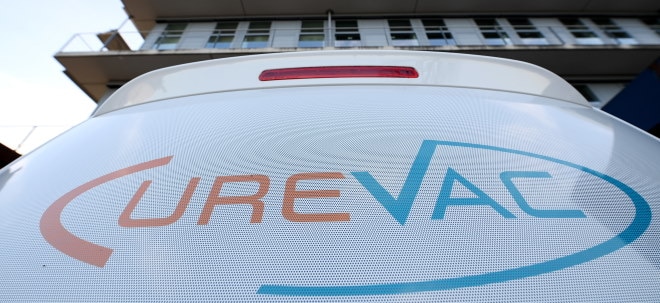Multiple Sclerosis Market to Grow Rapidly at a CAGR of 3.8% During the Forecast Period (2025-2034) | DelveInsight
The multiple sclerosis market is growing due to rising prevalence, earlier diagnosis, and wider access to care. Demand is fueled by advancements in DMTs and emerging BTK inhibitors, which offer targeted, high-efficacy options, especially for progressive forms with limited existing therapies.
LAS VEGAS, June 11, 2025 /PRNewswire/ -- Multiple sclerosis is a long-term autoimmune disorder in which the immune system mistakenly attacks the protective sheath surrounding nerves in the brain and spinal cord. This interference disrupts the flow of signals between the brain and the rest of the body, leading to symptoms such as fatigue, muscle weakness, vision disturbances, and difficulty with mobility.

The severity and progression of multiple sclerosis can vary greatly among individuals. As of 2024, there were an estimated 1.6 million diagnosed cases of multiple sclerosis across the 7MM. This number is expected to increase at a CAGR of 1.4% over the forecast period from 2025 to 2034.
The therapeutic landscape for multiple sclerosis has undergone a significant transformation, spurred by progress in both drug-based and supportive treatment approaches. Although MS remains without a cure, the market is seeing an expanding array of disease-modifying therapies (DMTs), greater personalization of care, and innovations in how treatments are delivered—all aimed at enhancing patient outcomes and quality of life.
Pharmacologically, multiple sclerosis treatment involves both immediate and long-term strategies. For managing acute relapses, high-dose intravenous corticosteroids, most commonly methylprednisolone, continue to be the primary treatment, usually given over 3 to 5 days and followed by a course of tapering oral steroids.
Learn more about the multiple sclerosis therapeutics market @ Multiple Sclerosis Drugs Market
Intravenous corticosteroids, such as methylprednisolone, are effective for treating acute multiple sclerosis relapses but do not impact the long-term course of the disease. Ongoing disease management relies on disease-modifying therapies (DMTs), selected based on the severity of MS and individual patient requirements, to reduce relapse frequency and delay disability progression.
While older injectable multiple sclerosis treatments like PLEGRIDY are still used, newer oral options like MAYZENT, VUMERITY, and MAVENCLAD provide greater convenience and may improve patient adherence. High-efficacy monoclonal antibodies (mAbs), including OCREVUS (now also available in a subcutaneous form), KESIMPTA, and BRIUMVI, are increasingly preferred for home-based therapy. Although LEMTRADA is a potent option, its use is restricted due to safety risks and its inclusion in the REMS program.
As key multiple sclerosis drugs such as TYSABRI, TECFIDERA, AUBAGIO, and GILENYA face generic competition, pricing and access are being reshaped. In response, originator companies are shifting focus to next-generation treatments and improved formulations, such as subcutaneous versions and enhanced safety features, to retain market share.
Supportive therapies also play a critical role; rehabilitation via exercise and physiotherapy can improve mobility and reduce fatigue, especially in progressive multiple sclerosis. Cognitive behavioral therapy (CBT) and mindfulness strategies help manage mood disorders like depression and anxiety, which in turn support treatment adherence.
Additionally, lifestyle modifications involving diet, sleep hygiene, and vitamin D intake aid in symptom control. Assistive devices and occupational therapy further promote independence and enhance quality of life.
Find out more on FDA-approved multiple sclerosis medication @ Multiple Sclerosis Treatments
Multiple sclerosis treatment lacks neuroprotective and remyelinating therapies, with limited options for progressive multiple sclerosis. Current drugs focus on immune modulation but fail to reverse damage or halt progression. Diagnostic delays remain common due to nonspecific symptoms and limited biomarkers. There is a critical need for early detection tools, personalized therapies, and agents targeting neurodegeneration to improve outcomes in multiple sclerosis.
The multiple sclerosis treatment pipeline remains robust, with promising candidates like Remibrutinib, Tolebrutinib, Fenebrutinib, and CNM-Au8 targeting novel mechanisms such as BTK inhibition and neuroprotection.
Other multiple sclerosis drugs in the pipeline include Frexalimab (SAR441344) (Sanofi), Vidofludimus calcium (IMU-838) (Immunic Therapeutics), Masitinib (AB Science), PIPE-307 (Contineum Therapeutics), and others.
These multiple sclerosis pipeline therapies reflect an increasing emphasis on progressive multiple sclerosis and remyelination to improve long-term outcomes.
Discover which therapies are expected to grab major multiple sclerosis market share @ Multiple Sclerosis Treatment Market
Tolebrutinib is an oral BTK inhibitor designed to penetrate the blood–brain barrier, targeting both B cells and microglia to mitigate smoldering neuroinflammation in multiple sclerosis (MS). By focusing on central nervous system (CNS) processes that drive neurodegeneration, it aims to address disease progression beyond peripheral inflammation. In March 2025, the US FDA accepted tolebrutinib for priority review as a treatment for non-relapsing secondary progressive multiple sclerosis, to slow relapse-independent disability progression. A decision is anticipated by September 2025, with a parallel evaluation ongoing in the EU.
Vidofludimus calcium is an investigational oral therapy currently in Phase III trials for relapsing multiple sclerosis and Phase II for progressive multiple sclerosis. It combines DHODH inhibition for immune regulation with Nurr1 activation for potential neuroprotective effects, aiming to target key mechanisms of neurodegeneration. In April 2025, Immunic reported positive outcomes from the Phase II CALLIPER trial, supporting vidofludimus calcium's role as a Nurr1 activator in progressive multiple sclerosis patients.
Fenebrutinib is an innovative, oral, reversible, non-covalent BTK inhibitor in Phase III development for MS. By modulating both adaptive and innate immune responses via B cells and microglia, it offers a dual approach to controlling disease activity and slowing disability. It is currently the only reversible BTK inhibitor in late-stage multiple sclerosis trials.
The Phase III program includes FENhance 1 and 2 studies in relapsing multiple sclerosis (vs. teriflunomide) and the FENtrepid trial in primary progressive multiple sclerosis (vs. ocrelizumab), marking the first head-to-head comparison of a BTK inhibitor with an approved PPMS therapy. Regulatory submissions for both RMS and PPMS are planned for 2026. In September 2024, Roche presented 48-week results from the FENopta Phase II open-label extension at the 40th ECTRIMS Congress.
Remibrutinib is an oral covalent BTK inhibitor under investigation for multiple sclerosis and chronic spontaneous urticaria (CSU), where it blocks BTK signaling to prevent histamine release. While no Phase I or II trials have yet been conducted for multiple sclerosis, remibrutinib is in Phase III development for CSU through the REMODEL-1 and REMODEL-2 trials. Primary completion is expected in 2026, with regulatory submission anticipated in 2027. Earlier Phase IIb CSU data showed favorable safety and tolerability.
CNM-Au8 is an oral gold nanocrystal therapy designed to address mitochondrial dysfunction in multiple sclerosis by boosting NAD+ production, enhancing antioxidant capacity, and activating the heat shock factor-1 pathway to support protein homeostasis. Although the VISIONARY-MS Phase II trial was halted early due to COVID-19, CNM-Au8 is being evaluated in the ongoing Phase II REPAIR-MS trial. Results from REPAIR-MS, along with a planned FDA End-of-Phase II meeting in 2025, will inform the design of a global Phase III trial. In April 2025, Clene Nanomedicine presented promising new data at the AAN Annual Meeting, showing meaningful improvements in cognition and visual function from the VISIONARY-MS open-label extension.
Masitinib is being developed for progressive multiple sclerosis with a focus on inhibiting mast cells and microglia, key players in chronic neuroinflammation. This approach aims to slow progression in patients with primary progressive multiple sclerosis (PPMS) and non-active secondary progressive multiple sclerosis (SPMS). Following positive results from a Phase IIb/III study, a confirmatory Phase III trial is ongoing. In September 2024, AB Science provided an update on masitinib's development at the ECTRIMS 2024 conference.
Discover more about the multiple sclerosis pipeline @ Multiple Sclerosis Clinical Trials
The anticipated launch of these emerging therapies for multiple sclerosis are poised to transform the market landscape in the coming years. As these cutting-edge therapies continue to mature and gain regulatory approval, they are expected to reshape the multiple sclerosis market landscape, offering new standards of care and unlocking opportunities for medical innovation and economic growth.
DelveInsight estimates that the market size for Multiple Sclerosis is expected to grow from USD 20 billion in the 7MM in 2024 at a 3.8% CAGR by 2034. This expansion across the 7MM will be driven by the introduction of innovative therapies, remibrutinib, tolebrutinib, fenebrutinib, frexalimab, vidofludimus calcium, CNM-Au8, and masitinib, among others. Furthermore, multiple sclerosis prevalence is rising due to modifiable environmental and lifestyle factors like Epstein-Barr virus, low vitamin D, smoking, obesity, and night shifts, with genetics and geography also contributing.
DelveInsight's latest published market report, titled Multiple Sclerosis – Market Insight, Epidemiology, and Market Forecast – 2034, will help you to discover which market leader is going to capture the largest market share. The report provides comprehensive insights into the multiple sclerosis country-specific treatment guidelines, patient pool analysis, and epidemiology forecast to help understand the key opportunities and assess the market's underlying potential. The multiple sclerosis market report proffers epidemiological analysis for the study period 2020–2034 in the 7MM, segmented into:
- Total Diagnosed Prevalent Cases of Multiple Sclerosis
- Gender-specific Diagnosed Prevalent Cases of Multiple Sclerosis
- Phenotype-specific Diagnosed Prevalent Cases of Multiple Sclerosis
- EDSS-specific Diagnosed Prevalent Cases of Multiple Sclerosis
The report provides an edge while developing business strategies by understanding trends shaping and driving the 7MM multiple sclerosis market. Highlights include:
- 10-year Forecast
- 7MM Analysis
- Epidemiology-based Market Forecasting
- Historical and Forecasted Market Analysis upto 2034
- Emerging Drug Market Uptake
- Peak Sales Analysis
- Key Cross Competition Analysis
- Industry Expert's Opinion
- Access and Reimbursement
Download this multiple sclerosis market report to assess the epidemiology forecasts, understand the patient journeys, know KOLs' opinions about the upcoming treatment paradigms, and determine the factors contributing to the shift in the multiple sclerosis market. Also, stay abreast of the mitigating factors to improve your market position in the multiple sclerosis therapeutic space.
Related Reports
Multiple Sclerosis Epidemiology Forecast
Multiple Sclerosis Epidemiology Forecast – 2034 report delivers an in-depth understanding of the disease, historical and forecasted multiple sclerosis epidemiology in the 7MM, i.e., the United States, EU4 (Germany, France, Italy, Spain), the United Kingdom, and Japan.
Multiple Sclerosis Pipeline Insight – 2025 report provides comprehensive insights about the pipeline landscape, pipeline drug profiles, including clinical and non-clinical stage products, and the key multiple sclerosis companies, including Sanofi, Immunic, InnoCare Pharma, Tiziana Life Sciences, Biogen, Bristol-Myers Squibb, ImStem Biotechnology, Idorsia Pharmaceuticals, among others.
Relapsing-Remitting Multiple Sclerosis Market
Relapsing-Remitting Multiple Sclerosis Market Insights, Epidemiology, and Market Forecast – 2034 report deliver an in-depth understanding of the disease, historical and forecasted epidemiology, market share of the individual therapies, and key RRMS companies including Mapi Pharma, Apimeds, Genentech (Roche), Merck, Clene Nanomedicine, InnoCare Pharma, Oryzon Genomics, among others
Relapsing-Remitting Multiple Sclerosis Pipeline
Relapsing-Remitting Multiple Sclerosis Pipeline Insight – 2025 report provides comprehensive insights about the pipeline landscape, pipeline drug profiles, including clinical and non-clinical stage products, and the key RRMS companies, including TG Therapeutics, Novartis, Sanofi, CinnaGen, Immunic, Mapi Pharma, Apimeds, Genentech (Roche), Merck, Clene Nanomedicine, InnoCare Pharma, Oryzon Genomics, GeNeuro SA, GlaxoSmithKline, among others.
About DelveInsight
DelveInsight is a leading Business Consultant and Market Research firm focused exclusively on life sciences. It supports pharma companies by providing comprehensive end-to-end solutions to improve their performance. Get hassle-free access to all the healthcare and pharma market research reports through our subscription-based platform PharmDelve.
Contact Us
Shruti Thakur
info@delveinsight.com
+14699457679
Logo: https://mma.prnewswire.com/media/1082265/DelveInsight_Logo.jpg
![]() View original content:https://www.prnewswire.com/news-releases/multiple-sclerosis-market-to-grow-rapidly-at-a-cagr-of-3-8-during-the-forecast-period-20252034--delveinsight-302478634.html
View original content:https://www.prnewswire.com/news-releases/multiple-sclerosis-market-to-grow-rapidly-at-a-cagr-of-3-8-during-the-forecast-period-20252034--delveinsight-302478634.html
SOURCE DelveInsight Business Research, LLP

